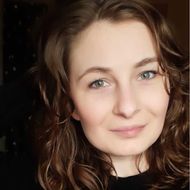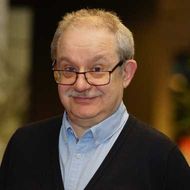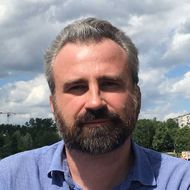Ambiguous attitudes held by the heirs of Russian moguls may affect the future of the country's big businesses. On one hand, the children of wealthy Russian business owners have an excellent headstart – they are well-educated and generally share their parents' values. Yet on the other hand, they are not likely to become selfless workaholics. Instead, they tend to be more hedonistic than their parents and less inclined to devote their entire life to building the family business. Most Russian business heirs expect to retire early and switch to hobbies, recreation and entertainment in their mid-life. Elena Rozhdestvenskaya, professor of the HSE Faculty of Social Sciences, is the first Russian researcher to study the mindsets of heirs of biggest Russian fortunes.
Parents of school students in Moscow tend to believe that test assignments in two major final exams—the Basic State Exam (BSE) and the Unified State Exam (USE)—are too complex and teachers fail to properly prepare students for the finals; this negative attitude, which appears to be a widely-held stereotype not necessarily supported by evidence, is formed long before the exams come round. However, according to a study by Alina Pishnyak and Natalia Khalina, once the exams are over, families no longer consider them so hard to pass.
The Inter-university Consortium for Political and Social Research (ICPSR) Summer Programme in Quantitative Methods of Social Research is in all likelihood the most prestigious summer school in the social sciences. Every year, the University of Michigan welcomes thousands of young researchers who are looking to develop their research skills under the supervision of world renowned professionals. Maxim Rudnev, Leading Research Fellow at the Laboratory for Comparative Studies in Mass Consciousness, shared his experience of the programme.
Christian Frohlich has been a Research Fellow at the Centre for Studies of Civil Society and Non-Profit Sector since 2014. This year he is being fast tracked for tenure in the HSE Faculty of Social Sciences in the School of Sociology. Dr Frohlich has a DPhil in Sociology from Leipzig University, Germany. He spoke to HSE English News about his research into civic activism in Russia and about why he likes living and working in Moscow.
On 20th and 27th May, colleagues from the HSE Department of Sociology gave lectures at the Free University of Berlin.Olga Simonova Associate Professor at the Department of General Sociology and Evgeniya Gol’man, Lecturer in General Sociology, talked to students on the Master’s programme in Eastern European studies about gender relations in Russia. Their visit to the Free University was part of the project to internationalise the Masters in Sociology in the Public Sphere and Social Communications which is supported by the Potanin Foundation.
International companies engage in social responsibility in order to to improve their reputation, be more competitive, and to gain political benefits and some degree of control over society. In Russia, however, businesses convert social investment into informal privileges granted to them by government, according to a paper by Olga Kuzina, Professor of the HSE Department of Economic Sociology, and Marina Chernysheva, postgraduate student at the same department.
On Tuesday, May 19, at 6.00pm, Alain Blum (Centre d’études franco-russe de Moscou, INED and EHESS in Paris) will give a talk at the International Research Seminar in Sociology (School of Sociology (Myasnitskaya 9/11, room 424)) called ‘Forgotten stories of deportees in the USSR — The multiple lives of a single individual’. Ahead of his lecture, he agreed to speak with the HSE news service on a variety of topics, including his experience as a demographer, his transition into Soviet history, and his upcoming research plans.
The European PhD in Socio Economic and Statistical Studies was initiated in 2001 by Sapienza Università di Roma. The programme is currently coordinated by Humboldt-Universität zu Berlin and brings together seven universities, including the University of Haifa, the University of Southampton and the University of Tampere.
Even today, ages-old folk culture can serve as a basis for collective identity by bringing together people who share this interest and underlying values, as evidenced by Russia's folk heritage movement. According to
Rostislav Kononenko, Senior Lecturer at the HSE's Department of General Sociology, and
Evgenia Karpova, Master's student at the HSE, the folk heritage movement in Russia is driven by urban intellectuals working to preserve and promote authentic folk culture.
A special issue of Osteuropa journal (Berlin) has been published, and four authors from the HSE Faculty of Social Sciences participated in it. The topic of the issue is ‘The People and its “I”: Authoritarian Rule and Legitimacy’.









.jpg)



